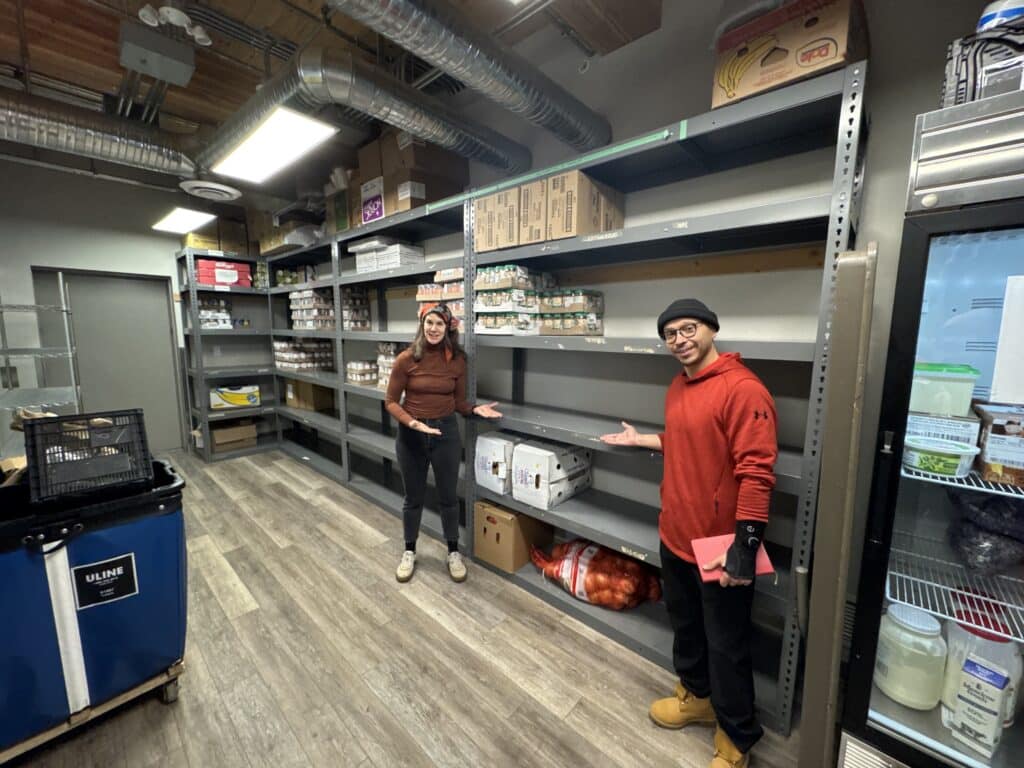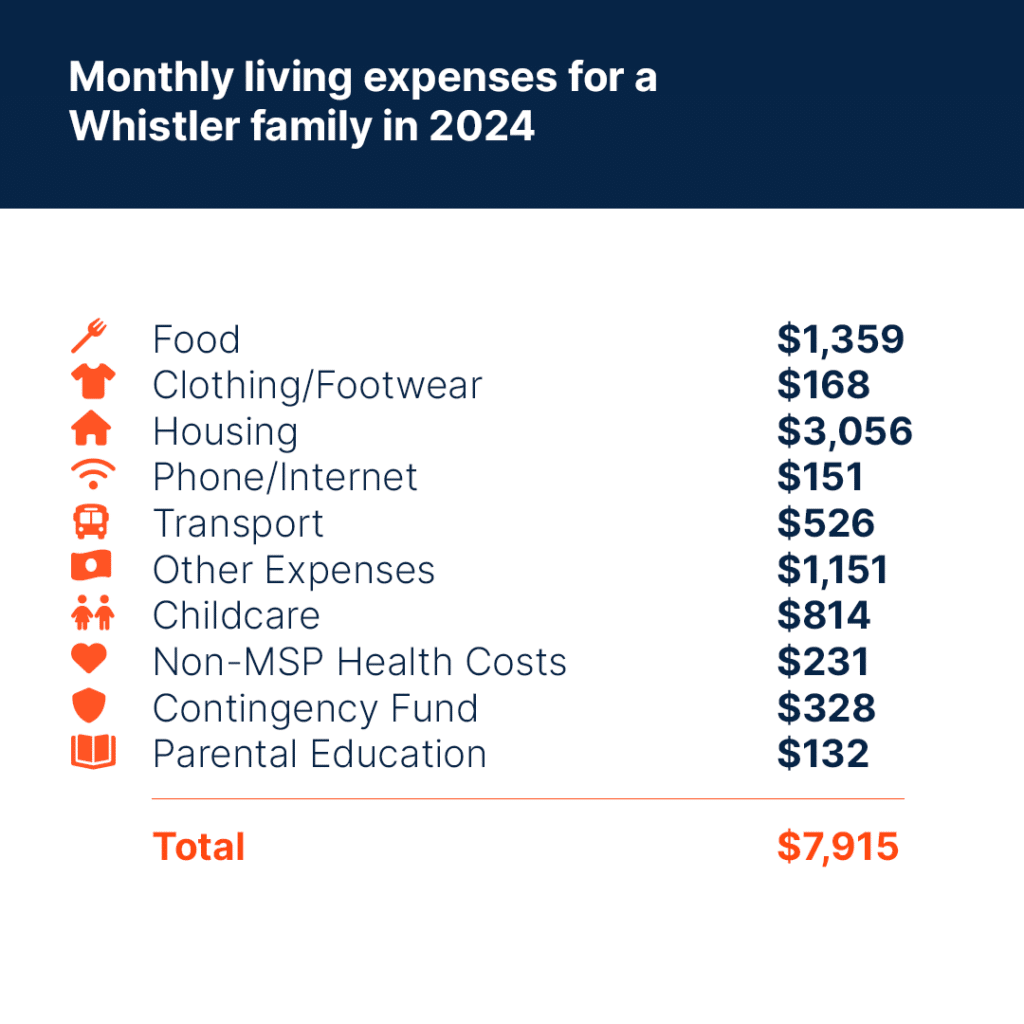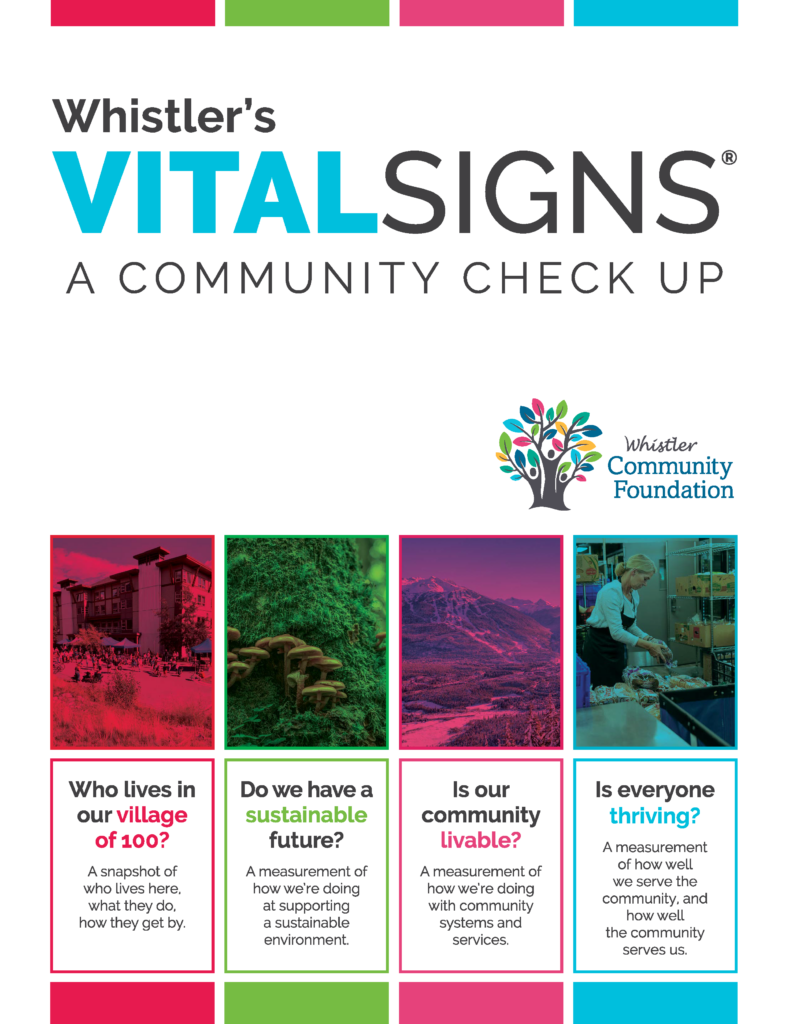It's Granting Season

Data suggests we have a community in high need
On Monday, January 20, 2025, we opened Whistler Community Foundation’s grant application portal. It’s always an exciting time at the foundation when you know you have money to grant. And while the granting dollars are significant for a small community, we know that they are not enough.
Not in these times, anyway.
Before the pandemic, our community faced issues, for sure. Today is a different story. Life’s challenges have been amplified for community members and the non-profits that serve them. For example, the food bank at Whistler Community Services Society (WCSS) has seen its visits grow by 700% since 2019, from 3,005 visits per year to 21,158 in 2024.
One could argue that the pandemic destigmatized food bank use – and it probably has, to some extent. But the reality is that many advocacy organizations, and even governments, are talking about bigger picture issues affecting folks across the country – income, housing, transportation, childcare.
Whistler’s Living Wage highest in BC
At the end of 2024, our Vital Signs team received notice that Living Wage BC and Canadian Centre for Policy Alternatives – BC Office had finished a living wage calculation. The message: Whistler’s calculation is higher than any other community that has taken part in the calculation so far. That tops the previous record holder, Clayoquot Sound – a region known for tourism, whose 2024 wage came in at $27.40.
Whistler’s Living Wage is $28.09 per hour. That’s a gaping hole between a basic needs assessment and the minimum wage of $17.40 per hour.
At current, BC’s Living Wage calculations are based on the basic needs of two-parent families with young children—and both parents are earning a living wage for 35 hours per week each.
When you look at the calculations, it is simply a reality check on the cost of the basics in BC. A family has one car, a bus pass and basic phone and internet – and they are renters, not homeowners. Plus, there’s no budget for savings (beyond an emergency cushion) and no room for activities that help build a sense of belonging in a community where the tourism economy is centered on outdoor recreation that comes at a cost.
As we know from our Vital Signs research, thirty-one percent (31%) of Whistler’s permanent population is living, at least, an economically single life. Living Wage BC has acknowledged that family calculations don’t apply to everyone. So, this year, they conducted preliminary calculations for single parents (est. $30.10) and single people (est. $29.58) living in Whistler.



Shouldn’t we be talking about life in Whistler?
In fall of 2023 and fall of 2024, we held 3 Vital Conversations relating to Whistler’s Vital Signs – A Community Check Up.
1. Is our community livable?
2. Is everyone thriving?
3. Do we have a sustainable future?
These were dialogue events. We sat in groups and posed pre-scripted questions relating to each of the topics and its respective data found in our Vital Signs report . And what we confirmed about our report is that the issues we face intersect one another–and with exponential impact on ourselves and the systems we have come to rely on.
In the conversations, it was highlighted that people are facing many issues at once. So, even if your household income is enough or nearly enough for the basics, compounding problems like a transit strike, systemic racism, lack of affordable housing and a pandemic fallout (to name a few) can lead you to access services. Not to mention the unpredictability that we face with climate change.
So, what can we as a community do?
Well, life in Whistler is a bit of a wicked problem. We can’t solve all of these concerns with any single, straight-forward process. We need everyone to work together.
We need to have open dialogue, not just in community forums, but in workplaces, our homes, in our streets, in our schoolyards. We need to destigmatize conversations about how we as a community can rally together for collective action. And we need:
• Everyone to engage with our governments about the systems we use
• Organizational leaders to make a plan that moves more employers in our community toward becoming certified by Living Wage BC
• Folks who are economically sound to give back to the community
• Charities to succeed in the work that they do well
At Whistler Community Foundation, our intention is to do what we can to make an impact with these actions. And at this time of year, we take on the exciting responsibility of granting back the proceeds from your endowed investments to support the amazing work of charities across Whistler, Pemberton, and local First Nations. As we said, we know that what we have to give isn’t enough in this moment in history, but we do know that with your donation we can keep on growing.
Your Gift Grows Here
For over 25 years, your gifts have grown over time and helped charities deliver meaningful impact to our community. In 2024, two new memorial funds were created to support the legacies of Whistler locals Wayne Flebbe and Don MacLaurin. These funds secure future support for causes they cared about, ensuring their generosity lives on for generations.
Let’s work together to make a lasting impact. If you are thinking about an estate gift to the community, contact Claire at cmozes@whistlerfoundation.com.
